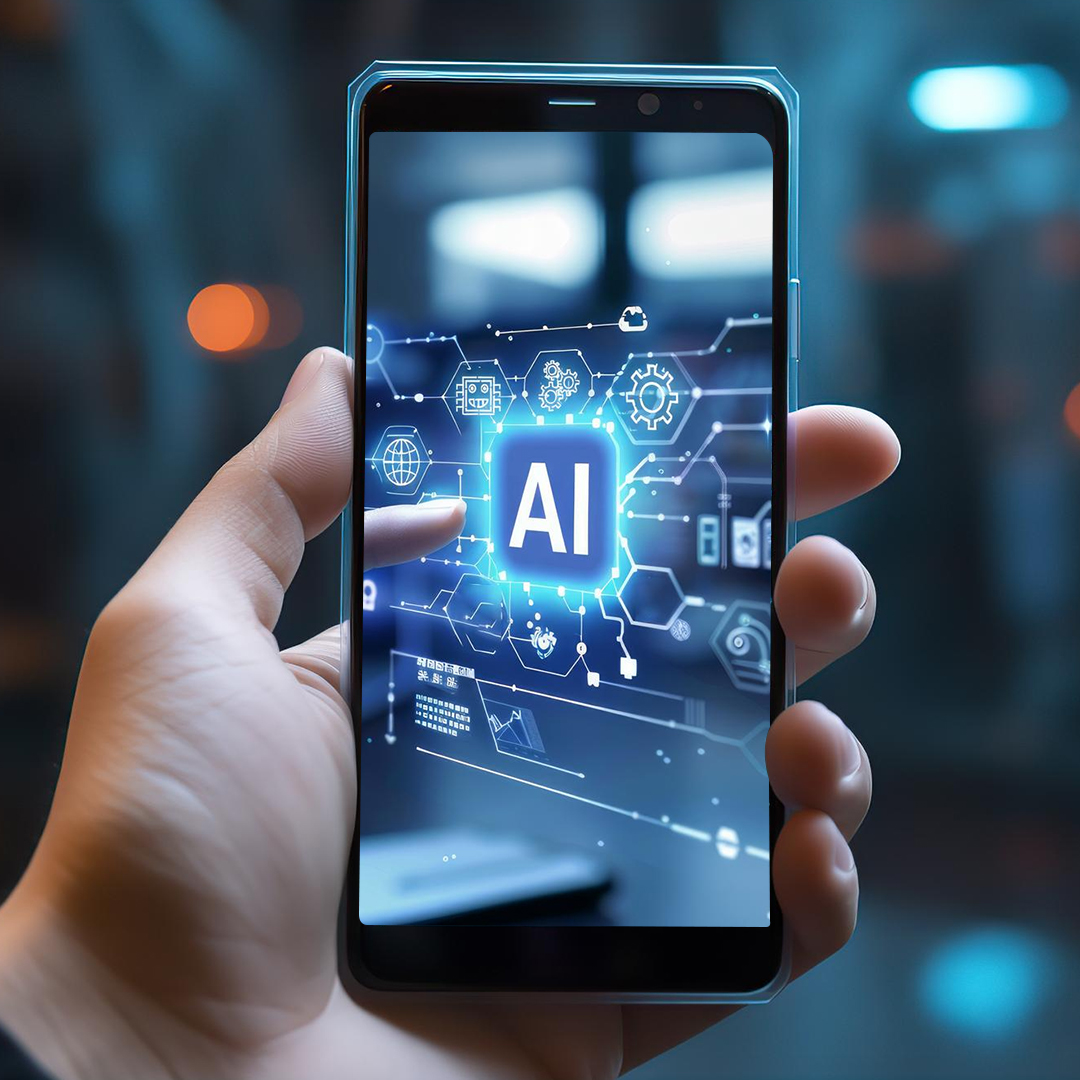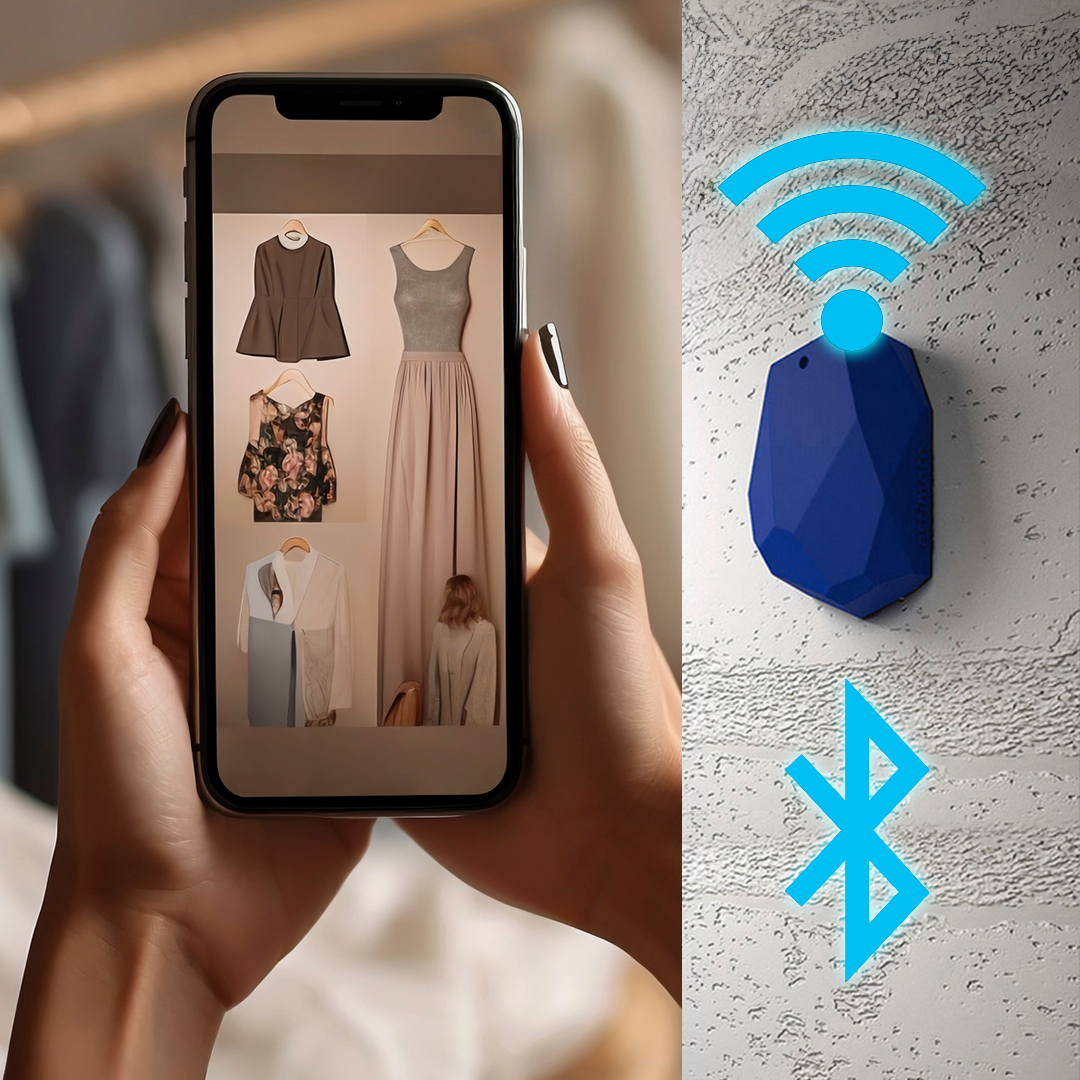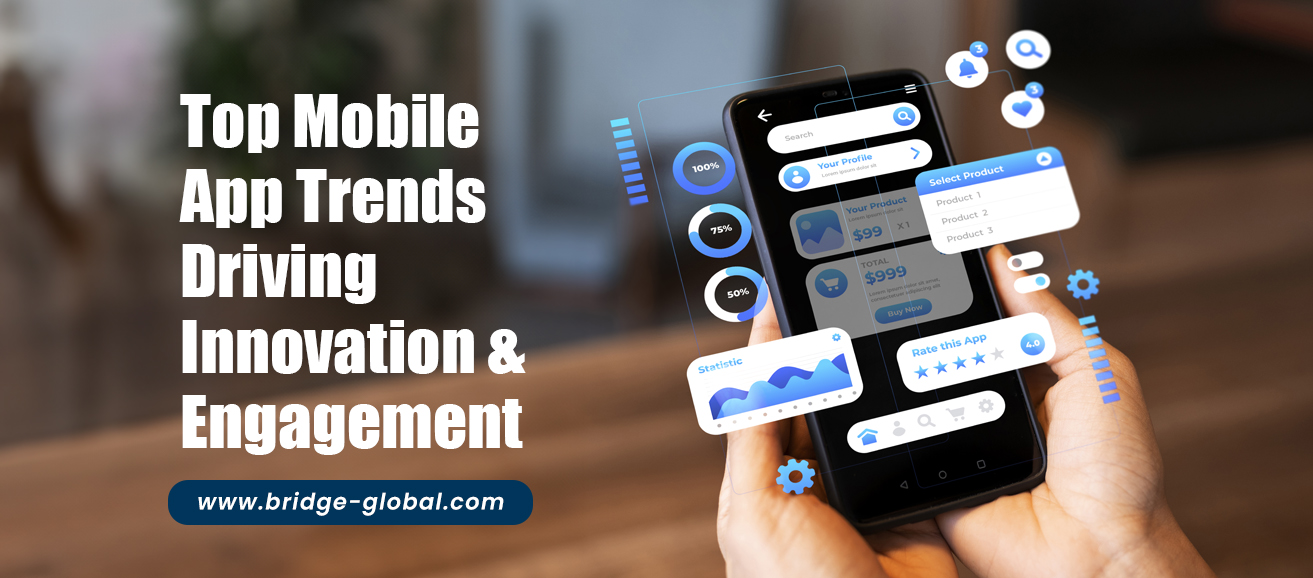The 5 Leading Mobile App Trends That Drive Innovation and Engagement
Mobile app trends are majorly responsible for the mobile development field has undergone some incredible milestones and dramatic breakthroughs. We've witnessed innovation in mobile apps, from the advent of Augmented Reality (AR) and the integration of Artificial Intelligence (AI) to the acceptance of Progressive Web Apps (PWAs) and increased security in seasoned mobile app development, as technology has advanced rapidly. Mobile application trends introduced 5G networks, integrated the Internet of Things (IoT) devices, and debuted beacon technology for location-based applications to transform the mobile app environment.
Also, blockchain applications, the expansion of mobile commerce, and the use of predictive analytics for user interaction have all played important roles in increasing the capabilities and engagement potential of mobile apps. These Android app trends and iOS app trends are milestones that represent a dynamic journey that continues to revolutionize user experiences and push the limits of mobile app innovation.
In a nutshell, there are a lot of emerging mobile technologies and mobile app personalization trends to watch!
These trends personalize phone apps and include practical tactics and technology that may dramatically improve the success of your mobile app. Recognizing these trends can provide you with vital insights and techniques for creating applications that engage, service, and keep users efficiently.
So, let’s have a look at the ever-changing environment of mobile app development, emphasizing the top mobile app trends that foster innovation and increase user engagement.
Most Innovative Mobile App Trends
1. Artificial Intelligence (AI)
Artificial intelligence (AI) has ushered in a new era of innovation in mobile apps and for every proficient custom software development. Apps not only respond to but also intelligently adapt to user needs. AI personalizes phone apps and enables them to think, learn, and make intelligent decisions, resulting in highly customized and engaging experiences along with security in mobile application development.
- Personalized Content Delivery: Streaming apps use AI algorithms to create tailored suggestions based on users' watching history and interests. This level of mobile app personalization capably matches consumers with their preferred content, resulting in longer engagement and higher user satisfaction.
- Voice Recognition: Voice recognition is among standard Android app trends and iOS app trends. Virtual assistants such as Siri and Google Assistant have become a conventional feature in today’s smartphones. These AI-powered speech interfaces allow users to naturally engage with their devices, presenting information, creating reminders, and even executing activities within apps using voice commands. This hands-free interaction not only improves user comfort but also encourages deeper levels of involvement. Among innovative AI developments, NLP (Natural Language Processing) from numerous organizations is quickly driving speech recognition toward completely conversational interfaces along with emerging mobile technologies.
- Conversational Interfaces: The next chapter in AI conversations emphasizes the continuous progress and improvement of AI-powered conversational interfaces. These advanced mobile application trends represent a huge step forward in making speech recognition technology more intuitive and engaging. It can match the user's natural manner of communication.
- Predictive Text Input: Predictive text input is another aspect of AI that predicts and offers words or phrases as users enter, simplifying text entry and decreasing mistakes. This predictive power in mobile app development improves the speed and precision of user interactions, such as sending messages, running searches, and filling out forms.
- AI-Powered Chatbots and Virtual Assistants: Additionally, the introduction of AI-powered chatbots and virtual assistants, such as ChatGPT and others, has transformed customer service and user engagement. These chatbots give quick replies to consumer questions, product suggestions, and assistance in a conversational format. Users may get help at any time, which increases user happiness and keeps them engaged with the app longer.
The Impact of AI on Mobile Apps
AI is a game changer when you hire developers with acclaimed expertise. It represents a dramatic shift in how things are made and what can be done with them. It has emerged as the driving force behind mobile app personalization and intelligent decision-making. Whether through targeted content suggestions, voice recognition, predictive text input, or AI-powered chatbots, AI's ability to recognize and respond to specific user needs dramatically improves mobile app user engagement.

2. Augmented Reality(AR)
Augmented Reality (AR) is among the emerging mobile technologies that seamlessly integrate the digital and physical worlds inside the boundaries of a mobile device. AR apps use a device's camera to superimpose digital objects onto the actual environment, creating engaging and interactive experiences that go beyond the ordinary.
- Transforming Retail and Shopping: This innovation in mobile apps has spread well beyond gaming, with apps in diverse sectors. Shoppers may use AR apps to improve their buying experience.
Impact on the AR and VR markets
This Android and iOS app trend emphasizes the huge public interest in immersive technology and the migration to new benchmarks of digital engagement beyond typical smartphone apps. Even AI and the Internet of Things (IoT) are close-knit with this technology.
- Revolutionizing Education: AR has emerged as a powerhouse, changing standard textbooks into immersive learning experiences. Educational apps now allow students to engage with 3D reconstructions of historical objects, examine virtual biological specimens, and explore the universe using their smartphone displays. AR mobile app trends make learning more interesting and participatory, promoting a deeper grasp of complicated concepts and improving information retention.
- Applications Beyond Shopping and Education: AR is bridging the gap between reality and digital innovation in several fields through personalized phone apps. It enables architects and interior designers to generate virtual walkthroughs of architectural concepts, allowing clients to see interiors before construction begins. In the healthcare industry, AR helps surgeons see complex medical operations in real-time, increasing precision and safety.
The Transformative Power of AR
Augmented Reality (AR) is more than just a technological curiosity in mobile app development; it is a powerful force that is revolutionizing user involvement across a wide range of businesses. AR effortlessly integrates digital aspects into the actual world and provides immersive experiences that boost retail, education, design, and numerous other sectors. This makes it a crucial mobile app trend for increasing user engagement and interaction.
3. Beacon Technology
Beacon technology is an intriguing innovation in mobile apps where the physical and digital worlds seamlessly merge to produce highly tailored user experiences. At its foundation, beacon technology works by using small, discreet devices known as beacons to send Bluetooth signals to adjacent smartphones and other smart devices.
- Context-Aware Interactions: When compatible mobile apps detect these signals, they enable context-aware interactions and content delivery, increasing user engagement to new heights. One of the standout mobile app personalization features of beacon technology is its capacity to detect users' physical proximity to specified locations or offerings.
- Transforming Retail Experiences: Mobile applications may identify a user's location in physical venues such as retail stores, museums, stadiums, or airports and give contextually relevant content, promotions, or information precisely when and where it is most needed. This mobile application trend even transforms the in-store retail shopping experience by greeting customers with tailored messages or offers. As customers wander around the store, beacons may send out messages about nearby products, compare prices, and offer discounts on items of interest.
This kind of tailored interaction not only improves the buying experience but also develops a bond between users and the company. - Enhancing Museum Visits: Museums and cultural organizations have also adopted beacon technology to improve visitor engagement with exhibitions. As viewers tour a museum, beacons might provide rich multimedia content, historical background, or interactive challenges based on certain artworks or items. This immersive method of learning promotes deeper involvement and a more comprehensive understanding of the subject.
- Broad Sector Application: Beacon technology has a wide range of applications. As an Android and iOS app trend, it includes hospitality, sports, and events. Hotel visitors can receive digital room keys upon arrival, whereas sports stadiums can provide spectators with real-time updates, seat upgrades, or concession stand discounts depending on their proximity to various places of interest.
The Potential for Beacons

Beacon technology is on a similar path to the QR code, which took some time to become a ubiquitous way of linking consumers to companies or each other. Beacons were initially sluggish to catch on, but they are progressively and increasingly interwoven into our daily lives. This is majorly due to improvements like ultra-wideband (UWB) and their implementation into smart city initiatives.
This combination of emerging mobile technologies and physical surroundings is paving the way for beacons to transform customized engagement.
By providing tailored information and interactions, they seamlessly integrate with our everyday experiences. As beacon technology advances, it has the potential to substantially improve our contact with the real world through mobile devices.
4. Mobile Learning (mLearning)
Mobile Learning, often known as mLearning, has developed as a transformative method of education and skill development. It allows users to consume instructional information on mobile devices at their own speed. This personalization of phone apps results in a flexible and interesting learning experience that improves knowledge retention.
- Flexibility and Accessibility: One of the primary benefits of mLearning is its mobile app personalization. Users may access instructional information at any time and from any location, integrating learning into their daily lives. Whether it's brushing up on a new language during a commute or learning a new skill while waiting for an appointment, mLearning accommodates each individual's schedule and preferences.
- Success Stories for mLearning: Being among the top mobile app trends, mLearning apps provide excellent instances. It can teach users with bite-sized lectures, interactive activities, and gamified challenges. Users may complete activities at their own speed, collect rewards, and measure their progress along the way. Engaging approaches to learning has made it a popular option among millions of users worldwide, illustrating the efficacy of mLearning in providing educational information.
- Different Content Formats: Through mobile app development, mLearning provides diverse content, such as video classes, quizzes, interactive simulations, and AR experiences. This diversity enables learners to interact with knowledge in ways that are appropriate for their specific learning styles, facilitating deeper comprehension and retention of information.
- Gamification in m-learning: To inspire and engage users, mLearning apps as a mobile application trend frequently incorporate gamification components. It can be rewards, badges, and leaderboards. These gamified elements make learning an exciting and competitive experience, increasing user engagement and development.
The Role of AI in mLearning
AI plays an important part in this innovation in the mLearning mobile app ecosystem. It greatly contributes to mass mobile app personalization by adapting learning experiences to each user's requirements. AI-powered mLearning apps can transform learning experiences by responding to the modern learner's choices and needs.
5. Predictive Analytics
Another one of the mobile app trends that has developed as an effective technique for mobile app development. It allows developers to acquire useful insights about user behavior and preferences. Even since predictive analytics became an emerging mobile technology, it has been capable of estimating the best moments for specific app engagements. It does this by studying previous user interactions and data to increase user engagement by presenting information when users are most receptive.
AI's Role in Enhancing Predictive Analytics
Another area where AI is allowing tremendous change is in predictive analytics. It transforms how developers understand and interact with their user base, paving the way for tailored and timely interaction.
- Optimizing Notification Timing: One of the key uses of predictive analytics is finding the optimal time to send notifications. Mobile apps can estimate when users will engage with their devices by analyzing user habits and historical data. This knowledge enables apps to deliver alerts strategically, ensuring that users get them at times when they are most likely to be attentive and receptive.
- Personalized Content Delivery: In addition, predictive analytics is critical for delivering tailored information. Understanding user preferences allows software algorithms to filter and distribute relevant content to individual users' tastes, resulting in a more gratifying and engaging user experience.
- Enhancing In-App Messages: Predictive analytics may also help with in-app messaging, which is another type of engagement tool. Apps can predict when users are most likely to interact with in-app messages, ensuring that crucial announcements, promotions, or updates are provided at the optimal time for visibility and action.
Predictive analytics uses past user data to determine the best times for app interactions including alerts, content delivery, and in-app communications. This strategic approach to engagement improves user happiness by delivering material when users are most receptive, resulting in increased levels of engagement and retention.
Closing Thoughts
In this ever-changing market, mobile app trends have become crucial, and the mobile app business is always evolving with the future holding even more exciting advancements. Staying up to date on the newest trends and forming collaborations with industry experts can help you position your mobile app for success in this ever-changing world. Their support will help you journey on a continuous discovery of new ideas and user experiences with the possibility of unlimited expansion.




By focusing on user experience, personalization, social integration, voice-based interactions, AR/VR capabilities, location-based services, offline functionality, and robust security measures, mobile app developers can craft an engaging and compelling app that stands out in the crowded marketplace.